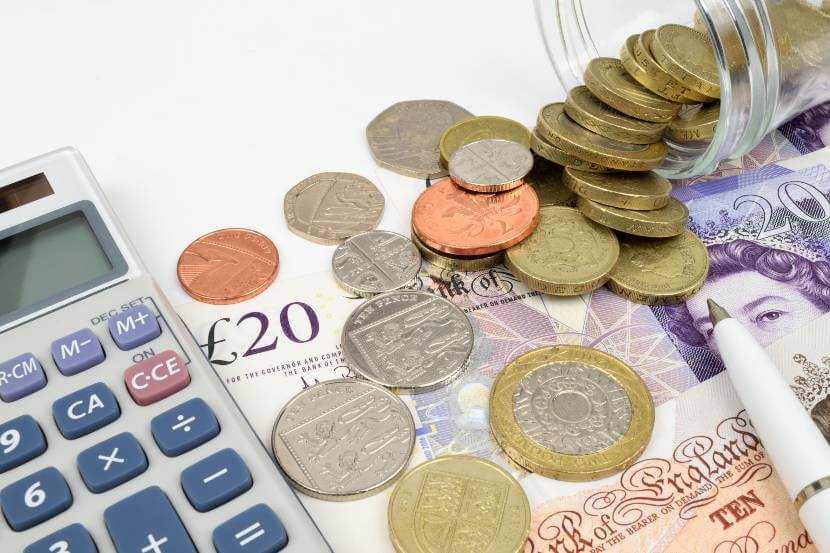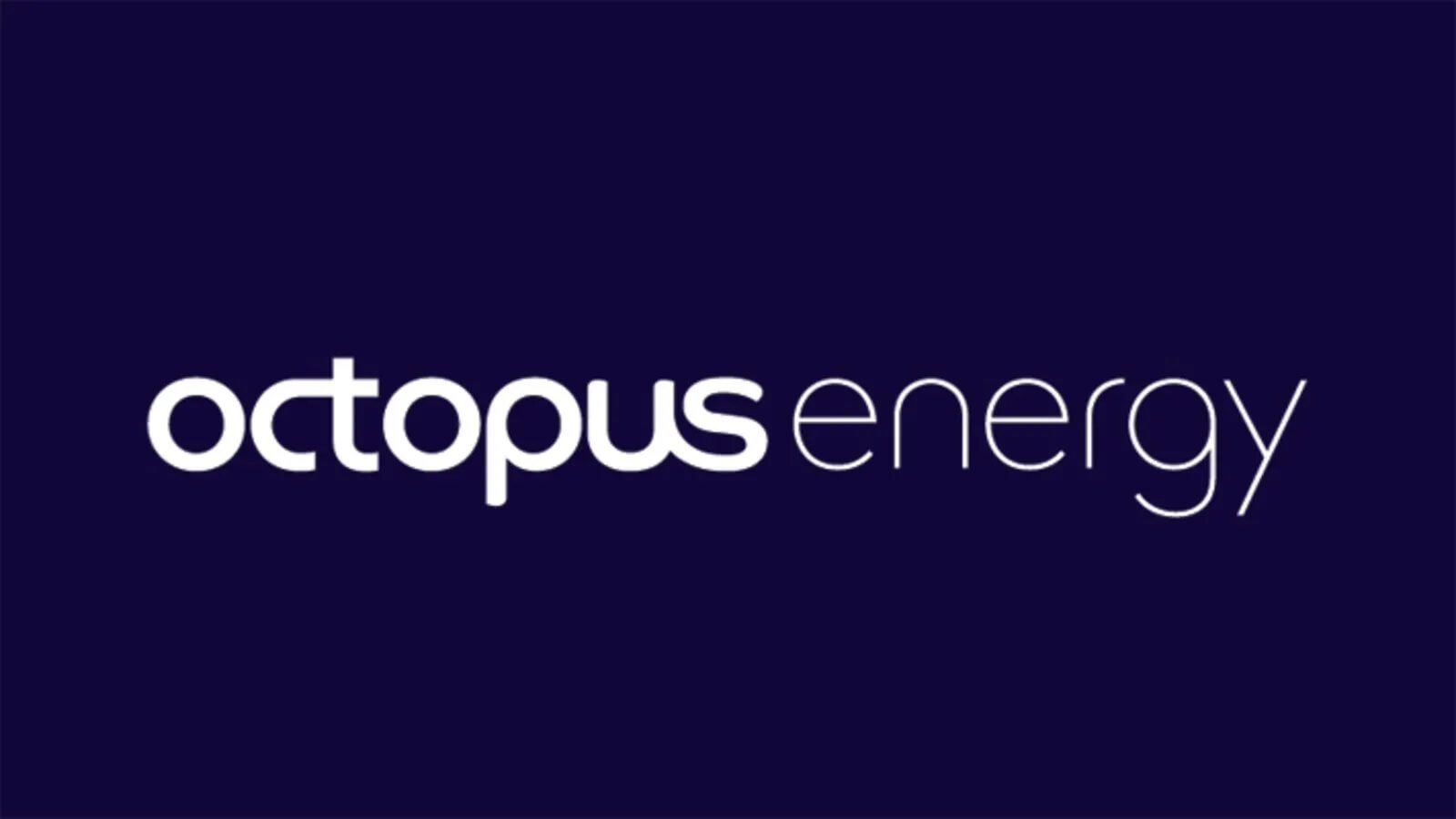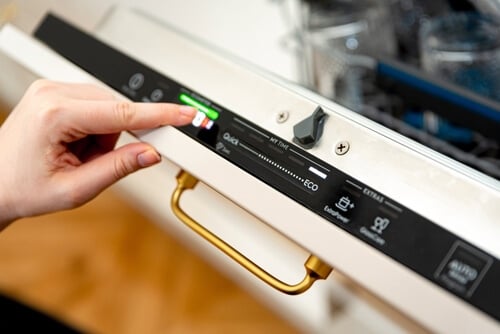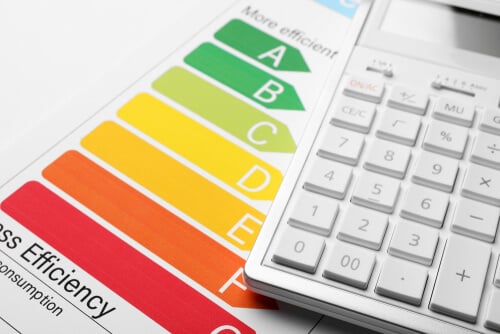How should you pay your gas and electric bill? Figuring out the most cost-effective and convenient way to pay your bills is a key part of managing your energy. In this guide we talk through the pros and cons of some of the options.

Switching energy providers
If you're looking for certainty on your energy bills, compare energy deals to see fixed deals that are currently available.
Payment methods
Direct debit (monthly and quarterly)
Direct debit is the most common way to pay energy bills. You authorise your bank to release a fixed sum that covers the cost of your energy usage on same date each month or quarter.
Pros:
-
It takes the stress out of remembering to make payments, as these are processed automatically.
-
Your supplier bases your energy bill on your predicted use, the unit rates and standing charges on your tariff. If you use less gas or electricity than expected, you build up credit in your account. You can use this to cover future bills which is useful in winter when usage goes up or if energy prices suddenly rise.
Cons:
-
You need to make sure you’ve enough funds available to make payments.
-
You may underpay each month, meaning you end up owing more that you expected or have budgeted for.
-
You may overpay, meaning more cash than necessary is in the hands of your energy company. This could be cash you’d need to cover other outgoings.
-
It isn't necessarily the cheapest way to pay as the government attempts to end the "prepayment premium".
Prepayment meter
If you have a prepayment meter installed, you have to pay up front for gas and electric via a top-up card, fob or online. You can also make a physical payment at newsagents, mini-markets and the Post Office.
Pros:
-
You can control exactly what you spend on energy
-
Plenty of shops offer top-up facilities
-
Prepayment may now be slightly cheaper than Direct Debit as the government attempts to end the "prepayment premium".
Cons:
-
Unless you top-up online, visiting a shop to top up can be inconvenient if you have mobility issues, or you’re unwell
-
You run the risk of running out of gas or electricity at inconvenient times
Paying upon receipt of bill
With this option, you get a bill at the end of each month or quarter. The bill reflects your actual usage, which is based on meter readings, your typical use, seasonal trends and energy prices.
Pros:
-
Convenience - you can pay online, by post or in person at the Post Office
-
You may get a discount for speedy payments
Cons:
-
You must settle your bill before the supplier’s deadline or you could face a late payment charge
-
You need to ensure you have enough money to pay your bill when it’s due, including a buffer just in case the total cost is greater than expected
Paying by cash or cheque
Most suppliers let you pay by cash or cheque. You have to pay by the supplier’s deadline, but you can send a cheque or pay in cash at specific pay points.
Pros:
- You know exactly what you're spending.
- It’s secure and safe, plus the payment leaves your account immediately, helping you to keep on top of your finances
Cons:
-
It can cost more to pay by cash or cheque than by Direct Debit
-
You need to settle your bill before the supplier’s deadline or you could face a late payment charge
-
You need to ensure you have enough money to pay your bill when it’s due. You should also include a buffer just in case the total cost is more than you expect.
Paying online or through an app
Most utility providers offer apps so you can view your energy usage and check your spending.
Main benefits:
-
You can monitor your energy consumption and costs in real time, making it easier to budget and top up when needed
-
It’s secure, safe and the payment leaves your account immediately, helping you to keep on top of your finances
Main issues:
-
You’re reliant on your app and internet connection running smoothly
-
You must take care not to misplace your phone or run out of battery at a critical time
Using a payment card
A gas or electricity payment card allows you to move some of your money into a pot that’s only used to make energy payments. You can top up at shops with PayPoint or at the Post Office. You can also make payments toward your typically monthly or quarterly bill whenever you like.
Pros:
-
This is a convenient way to put money aside and make payments toward expected quarterly bills.
-
You can top up your card at numerous high street retailers.
Cons:
-
You must ensure all payments are made by each bill deadline to avoid penalties.
-
There’s no online top-up or payment option.
-
Early payment in full isn’t usually rewarded with a discount.
-
You need your fob, key or card. If you lose it, you could be short of energy until you’ve managed to contact your supplier.
What if I've missed a payment on my gas or electricity bill?
If you miss a payment, can’t afford to cover it in full or are concerned about the way things are going, speak to your energy supplier.
One of the main reasons why there are so many payment options available is to help you ensure that you pay on time. But, with gas and electricity prices rocketing, even the best laid plans can go awry. This risks leaving you short on what you owe your energy provider.
This is unsettling and stressful, but there is help available. Utility companies know that the the price hikes are putting their customers under financial strain. And they must offer you help to get back on track.
Things can unravel pretty quickly if you don’t work with your gas or electricity provider. After a month or so of no cooperation or good will on your part you’re likely to face additional charges for late payments. You also risk your supply being disconnected.If you still owe money, your utility company might instruct a debt collection agency to recover what’s owed to them, plus expenses. This could damage your credit score and court orders may follow.
How can I change my energy payment method?
Generally you should be able to contact your supplier and ask for a change of payment method. This can be a bit more complicated if you're on a prepayment meter because it may involve swapping to a credit meter, but this is generally straightforward if you pass a credit check.
Can energy companies cut my gas or electricity supply?
Your supplier can disconnect your supply if it feels it is necessary, though this is rare and reserved for the most serious cases. But there are some exceptions. Your supplier must keep you connected between 1 October and 31 March in the following circumstances:
- You’re of State Pension age and live alone
- You and the person you live both receive a State Pension
- You get a State Pension and live with someone under 18 years old.
What should I do if I can't afford to pay my energy bills?
Contact your supplier if you’re concerned about your energy bill. It could be that your bill doesn’t tally with your meter reading, so have an up-to-date reading ready. If the bill’s accurate, but you just can’t afford the payment, your provider must offer to help you find a way to make repayments.
It’s essential to keep a line of communication open with your supplier. Remember, your company should be used to customers contacting them with payment concerns.
What help can my supplier give me to keep up with gas and electric payments?
Given it’s in everyone’s interests to keep making payments, energy suppliers usually offer you a payment plan. They might:
- Extend your payment deadlines
- Authorise payment holidays
- Give you temporary credit if you have a prepayment meter
If your payment hiccup isn’t a one-off, your energy company may switch you to a prepayment meter to avoid future problems. This isn't a punishment. Instead, it’s a reasonable way to help you budget and pay for the energy you use.
What if my energy bills are still too high?
If you're habitually struggling to pay your gas and electricity bills, it could be worth shopping around to see if you can find a cheaper energy provider or tariff. Energy companies are obliged to make the switching process easy, so there’s nothing to stop you from looking for a better deal.
Am I entitled to extra government help to pay my gas and electric bill?
There are several government schemes available to households:
Winter Fuel Payment: If you’re of State Pension age you get an annual tax-free payment of between £100 and £300 to put towards your energy bills.
Cold Weather Payments: You could be entitled to a Cold Weather Payment of £25 if temperatures are recorded as (or forecast to be) below zero degrees Celsius for 7 consecutive days between 1 November and 31 March. You can get this payment if you receive certain benefits, including Universal Credit and Income Support.
Warm Home Discount: You could be eligible for a £150 rebate on your winter electricity bills if you meet certain criteria, based on your household income.
Fuel Direct: This scheme sees some of your bills, including energy, water and rent, paid out of your benefits. It’s also called ‘third-party deductions’.







